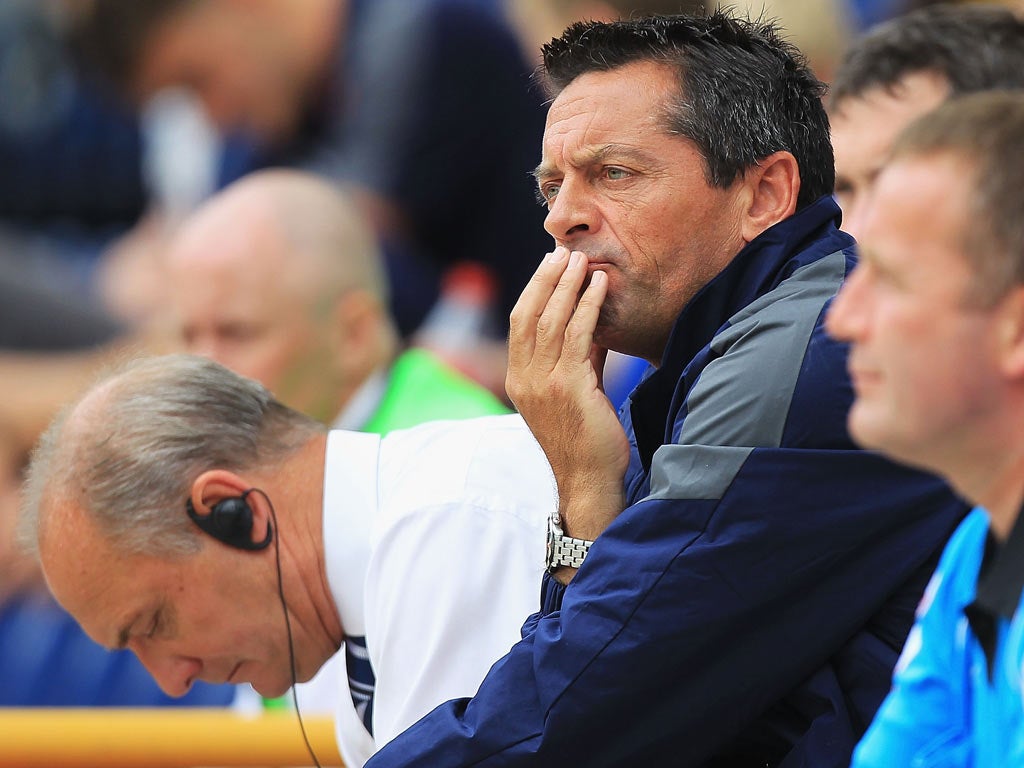One year and 56 sackings – but only six in the Premier League
Managerial casualties are 10-a-penny but, asks Jack Gaughan, have teams in the top flight finally realised that patience pays?

If Steve Bruce had managed to hang on just a little longer, the Premier League would have broken a record last week.
A Sunderland victory instead of a home defeat by Wigan would almost certainly have kept Bruce in employment, which would have meant that all 20 top-flight managers had avoided the sack by the middle of December for the first time since 1999. The first to lose his job during that campaign was Danny Wilson at Sheffield Wednesday, who did not leave his post until March, with the club heavily embroiled in a relegation dogfight.
Richard Bevan, chief executive of the League Managers' Association, believes there has been a shift in values at boardroom level in the Premier League which has led to longer managerial spells. "One of the reasons why we've only seen one manager leave his club this season is that people are recognising that if you want success you've got to have stability," he told i. "There are a significant number of directors beginning to realise that if you appoint a manager you can't expect them to deliver results straight away. You have to give them time to [bring] their philosophies, culture and vision to a club."
The Wigan chairman, Dave Whelan, believes there is more realisation by owners of the pressures of managing top clubs. "A loss of patience in the boardroom means a huge loss of money for the club with the fees after making the decision," he says. "It's starting to come across to owners that it is a very difficult job and managers need time to try and put the problems right."
But while there seems to be a change of attitudes among the elite, the Football League shows no sign of altering. A staggering 56 managers have left their posts since 15 December 2010: 50 of those were in the Football League (see panel) while just six were in the top flight (Bruce, Roy Hodgson at Liverpool, Roberto Di Matteo at Albion, Mark Hughes at Fulham, Gérard Houllier at Aston Villa and Chelsea's Carlo Ancelotti).
"The Championship is where there is a significant amount of pressure and that's where we see the most amount of movement," says Bevan. "The clubs have got very short-term goals of surviving in the league or reaching the play-offs."
Blackpool chairman Karl Oyston agrees with that. Famous for running a tight ship at Bloomfield Road, Oyston poured scorn on directors who often make snap decisions to achieve their dreams. The introduction of Uefa's Financial Fair Play rules aims to stop clubs gambling away their futures for a quick prize. "The Premier League and the riches it brings has been the ruin of many clubs," Oyston told i. "There are 24 clubs chasing the dream of promotion and some are willing to gamble a lot of money.
"The Financial Fair Play rules will be breached and the penalties aren't strict enough. The penalty as it stands isn't enough. It should be to prevent promotion – that would be a real deterrent."
Bevan thinks the financial factors in the lower divisions mean that clubs should be more patient with their managers. "In the Football League there are greater financial pressures than in the Premier League. Therefore, you would like to think the need for financial stability in clubs would see them keep their manager longer. It is apparent in many cases: I don't think there were more than two or three clubs who made a profit last year," Bevan adds.
"We did a review analysing the cost of changing managers and the total figure was in excess of £99m last year. In a time when grass-roots academies and investment in club infrastructure is key, you would like to think that clubs will look a little bit more medium-term.
"The costs behind sacking a manager – from bringing in new players to compensation – are enormous. Clubs who value financial stability need to look at managerial stability. And if you look at results, only on a few occasions does changing your manager lead to long-term success."
In League One, Preston sacked manager Phil Brown yesterday, a week after Hartlepool relieved Mick Wadsworth of his duties. Despite an awful home record, Hartlepool were just five points off a play-off place and cited a fall in attendances and match-day revenue as the reason.
Hard-working Wadsworth said: "Decisions to get rid of managers can be short-sighted and it's too easy to constantly change. What it is saying to managers is 'Why bother?'."
Join our commenting forum
Join thought-provoking conversations, follow other Independent readers and see their replies
Comments
Bookmark popover
Removed from bookmarks